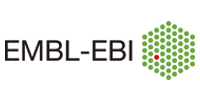 Methods for rare-variant association analysis
Methods for rare-variant association analysis
Date: 6 April 2022
Rare variants contribute to development of familial cancer. Genes carrying rare variants may contribute to molecular mechanisms of sporadic cancers. Historically, many of the rare variants were discovered by co-segregation with the disease in cancer families. However, recent progress in population scale sequencing opens new opportunities for using association analysis for detection of rare variants.
The standard methods of association analysis were developed for common variants. While the standard regression framework and population stratification approaches hold in the rare-variant analysis, it may additionally require (i) aggregating of variants per gene (or pathway), (ii) weighting by biological significance and allelic frequency, and (iii) applying permutation-style tests for estimating statistical significance.
The webinar will discuss these features of rare-variant analysis and illustrate their implementation using SKAT R library.
Contact: Ajay Mishra - webinars@ebi.ac.uk
Keywords: DNA & RNA (dna-rna), Proteins (proteins), UniProt: The Universal Protein Resource, Fermentation, Microbial ecosystems webinar, Antimicrobial resistance, Ensembl, BLAST, Open Targets Platform, Cross domain (cross-domain), Chemical biology (chemical-biology), Drug discovery, Drug target identification, UniRule, ARBA, Automated annotation, MetaboLights: Metabolomics repository and reference database, Chemical Entities of Biological Interest, ChEBI, Metabolites, Molecular building blocks of life, Human Cell Atlas Data Coordination Platform, Single-cell transcriptomics, HCA data portal, Programmatic access, API, Python, Complex Portal, macromolecular assembly, InterPro, Boolean modelling, Europe PubMed Central, Literature (literature), Open access, Protein Data Bank in Europe - Knowledge Base, 3D structure, AlphaFold Database, DeepMind, Artificial intelligence, AI, Structure prediction, cancer, Boolean, Ensembl Genomes, European Nucleotide Archive, Data archive, Raw sequencing data, RNAcentral, Non-coding RNA, ncRNA, GPU, Data protection, Job dispatcher, Bioimage analysis resource, Accessibility, Missense variation, Biostatistics, Rfam, non-coding RNA, Infernal software, Sequence annotation, Root microbiome, Abiotic stress, land management, Plant genotype, Plant webinar series, HPC, database development, cross-linked databases, Plant database, data infrastructure, Plant breeding, Data standards, data managemnet, data sharing, Hyb-Seq method, Flowering plants, Crop improvement, Pangenomics, Pangenomes, Virtual humans, Drug-target identification, plant-microbe interactions, Spatial transcriptomics, Plant research, Drug targets, Machine learning, Mathematical modelling, plant science, Data integration, plant-environment interaction, Phenotyping, field phenotyping, Deep phenotyping, EOSC-Life, NHGRI-EBI GWAS Catalog, clinical data, genome-wide association, plants, European Variation Archive, EVA, Variant clusters, Variant data annotation, Constraint-based metabolic modelling, UniProt knowledgebase, protein variant impact, disease-associated protein variants, Bioethics, FAIR principles, ELSI, cohort data, translational research, BioModels database, Mathematical modeling, Reproducibity, Systems biology models, workflows, federated analysis, polygenic risk scores, IntAct Molecular Interaction Database, PSICQUIC, IMEx, Complex portal, Agent-based modelling, Macrophages, Tumorigenesis, Training (Training), On-demand, teaching, introduction, Building blocks, Data analysis, COSMIC, Cancer mutation, Somatic mutation, ChEMBL: Bioactive data for drug discovery, Chemical compounds, drug-like molecules, Chemogenomics, Biocurator, Programming, Data management, Green Algorithms, Open data, Environmental impact, Carbon footprint, HPC workflows, Orchestrator, Gene expression (gene-expression), Chemosensitivity assay, Experimental protocols, Drug screening, MICHA, European Genome-phenome Archive, EGA, restricted access, UniProt, Introduction, UniProtKB, Proteome, Protein Data Bank in Europe, genes, Introductory, GDPR, Data security, Expression Atlas, Pfam, protein sequence search, Domain architecture, Protein taxonomy, AI structure prediction, COVID-19, Coronavirus, COVID-19 Data Portal, Virology, Computational simulations, Signalling prior knowledge, Cancer therapy response, PRIDE: The Proteomics Identifications Database, protein structure prediction, AI system, Competency framework, Publication, Journal club, Preprints, Aggregated view, Structural similarity, PPI networks, Cell signaling, Malaria, Biological networks, Graph theory, Building biological networks, Biocuration, Information Manager, Industry, Rare-variant, Variant association, SKAT
Organizer: European Bioinformatics Institute (EBI)
Host institutions: EMBL-EBI
Capacity: 1000
Event types:
- Workshops and courses
Scientific topics: Genomics, Variant calling
Activity log

 EMBL-EBI
EMBL-EBI
